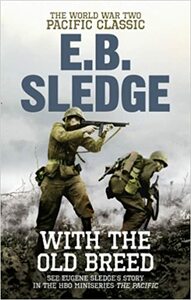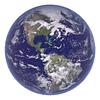Take a photo of a barcode or cover
With the Old Breed was a step outside my usual reading preferences, but I’m so glad I gave it a chance. This book, based on E.B. Sledge’s experiences during World War II, is written with incredible grace and provides a deeply personal glimpse into the challenges and struggles soldiers faced during this time.
I gained a lot of insight into their hardships, and I truly appreciated how Sledge explained different terms and weapons. He struck a perfect balance, offering just enough detail to inform without overwhelming the reader.
I would highly recommend this book to anyone who enjoys reading about history. It’s also an accessible and engaging read for those new to historical nonfiction.
I gained a lot of insight into their hardships, and I truly appreciated how Sledge explained different terms and weapons. He struck a perfect balance, offering just enough detail to inform without overwhelming the reader.
I would highly recommend this book to anyone who enjoys reading about history. It’s also an accessible and engaging read for those new to historical nonfiction.
This isn't a book I would choose to read on my own, but still, it was interesting. It's clear that E.B. Sledge was an excellent man. One complaint I had was that there was very little introspection. It was very much a history, and I could have gotten much of the information from any textbook. I wish he had spoken about his thoughts and feelings, though I understand why this might have been monstrously difficult.
i did what i had to do for class but i got too busy to finish and idc to do it on my own time. overall i liked it but i didnt care about all the technical war stuff, just his experience
Sledge's firsthand account of the island war on Peleliu and Okinawa is by turn fascinating, gripping, exciting and heartbreaking. It would be hard to recommend this book enough, especially for non-veterans seeking to understand why the people who go off to war are different from the people who come back.
This book was recommended to me after my boyfriend and I watched the Pacific on Netflix together. I enjoyed it. WTDOB is a memoir that describes first hand the psychology of fighting in a combat zone and the suffering that affects everyone in war. There are parts that are very heavy and heartbreaking, but E.B. Sledge wrote honestly about the sacrifices he and others; some who never came home—made for their county. I finished this book with a great respect for those who served in the Pacific Theatre. I wish I had been required to read this in school.
dark
emotional
sad
tense
medium-paced
challenging
fast-paced
This book is harrowing and humbling for someone that has never gone through what the men in this book went through. I think one passage sums up the horror of the author’s experience during and after the war when he personifies a dead marine’s words:
“It was as though he was mocking our pitiful efforts to hang onto life in the face of the constant violent death that had cut him down. Or maybe he was mocking the folly of the war itself: ‘I am the harvest of man’s stupidity. I am the fruit of the holocaust. I prayed like you to survive, but look at me now. It is over for us who are dead, but you must struggle, and will carry the memories all your life. People back home will wonder why you can’t forget.’”
War is hell.
“It was as though he was mocking our pitiful efforts to hang onto life in the face of the constant violent death that had cut him down. Or maybe he was mocking the folly of the war itself: ‘I am the harvest of man’s stupidity. I am the fruit of the holocaust. I prayed like you to survive, but look at me now. It is over for us who are dead, but you must struggle, and will carry the memories all your life. People back home will wonder why you can’t forget.’”
War is hell.
I really liked the author’s plainspoken, humble and informative style. His descriptions of people, places and events feel very really and never overhyped. Some scenes are so powerful in and of themselves the author’s lack of adornment are a benefit to the story itself (digging a foxhole in sticky clay in heavy rain and uncovering a maggot infested corpse comes to mind).
He takes you from his enlistment to his training all the way through his last detail after his final battle. He’s honest about his fears, doubts and disdain for the enemy and war itself. His thoughts and emotions are relatable in any era.
Although I read the Kindle version my sense is audio book is the best way to go because it has such a strong storytelling quality to it.
He takes you from his enlistment to his training all the way through his last detail after his final battle. He’s honest about his fears, doubts and disdain for the enemy and war itself. His thoughts and emotions are relatable in any era.
Although I read the Kindle version my sense is audio book is the best way to go because it has such a strong storytelling quality to it.
"With the Old Breed" by E. B. Sledge is, hands down, the most honest, grittiest, stomach-churning battle memoir I've ever read, and I've read many. Sledge fought in Peleliu and Okinawa under brutal conditions against a fierce, savage enemy and, as one might expect, the fighting descended into savagery of an unimaginable kind on both sides, and Sledge pulls no punches and hides no reality about what that meant on either side.
He writes about the fighting on Peleliu and this goes for the fighting on Okinawa and any other fighting that infantry soldiers are required to do.
"To the noncombatants and those on the periphery of action, the war meant only boredom or occasional excitement, but to those who entered the meat grinder itself, the war was a netherworld of horror from which escape seemed less and less likely as casualties mounted and the fighting dragged on and on. Time had no meaning. Life had no meaning. The fierce struggle for survival in the abyss of Peleliu eroded the veneer of civilization and made savages of us all."
Savages they were, on both sides. Sledge recounts some of the horrors in frank and brutal detail and it makes for difficult reading. It's easy to understand why soldiers come away from combat with PTSD.
Some things that Sledge points out about combat:
1. The worst thing for a soldier to undergo is shelling. He writes: "Under certain conditions of range and terrain I could hear the shells approaching from a considerable distance, thus prolonging the suspense into seemingly unending torture. At the instant, the voice of the shell grew the loudest it terminated in a flash and a deafening explosion similar to the crash of a loud clap of thunder. The ground shook and the concussion hurt my ears. Shell fragments tore the air apart as they rushed out, whirring and ripping. Rocks and dirt clattered onto the deck as smoke from the exploded shell dissipated."
2. Sledge points out the filth that the soldiers continually fought in and comments that this factor is missing from most combat memoirs, even though it is one of the worst, most miserable parts of combat. They went days without changing clothes, fighting in heat, rain, cold, mud, etc. His description of the fighting on Okinawa when they endured eleven straight days of almost constant rain is particularly appalling. At times the mud was up to their knees, and he said the rain often filled up his c-rat can just as fast as he could eat the contents, it was raining so hard. It's amazing that anyone could fight under such conditions and prevail as the Marines did.
3. The highest chance of getting killed was the first few days in combat. He comes across a line of Marines that have been killed in Okinawa by one shell burst and concludes that they were all replacements because battle veterans would have known to space themselves out to prevent exactly what occurred. If you survived the first few days, your odds of living went up, but when his company was taking so many casualties, this was little consolation. On both Peleliu and Okinawa, they took 50 to 60% casualties, even though he survived almost 100 days in combat without being injured.
This is a riveting, gut-wrenching, brutally honest memoir and one that will stay with the reader long after they finish the book.
He writes about the fighting on Peleliu and this goes for the fighting on Okinawa and any other fighting that infantry soldiers are required to do.
"To the noncombatants and those on the periphery of action, the war meant only boredom or occasional excitement, but to those who entered the meat grinder itself, the war was a netherworld of horror from which escape seemed less and less likely as casualties mounted and the fighting dragged on and on. Time had no meaning. Life had no meaning. The fierce struggle for survival in the abyss of Peleliu eroded the veneer of civilization and made savages of us all."
Savages they were, on both sides. Sledge recounts some of the horrors in frank and brutal detail and it makes for difficult reading. It's easy to understand why soldiers come away from combat with PTSD.
Some things that Sledge points out about combat:
1. The worst thing for a soldier to undergo is shelling. He writes: "Under certain conditions of range and terrain I could hear the shells approaching from a considerable distance, thus prolonging the suspense into seemingly unending torture. At the instant, the voice of the shell grew the loudest it terminated in a flash and a deafening explosion similar to the crash of a loud clap of thunder. The ground shook and the concussion hurt my ears. Shell fragments tore the air apart as they rushed out, whirring and ripping. Rocks and dirt clattered onto the deck as smoke from the exploded shell dissipated."
2. Sledge points out the filth that the soldiers continually fought in and comments that this factor is missing from most combat memoirs, even though it is one of the worst, most miserable parts of combat. They went days without changing clothes, fighting in heat, rain, cold, mud, etc. His description of the fighting on Okinawa when they endured eleven straight days of almost constant rain is particularly appalling. At times the mud was up to their knees, and he said the rain often filled up his c-rat can just as fast as he could eat the contents, it was raining so hard. It's amazing that anyone could fight under such conditions and prevail as the Marines did.
3. The highest chance of getting killed was the first few days in combat. He comes across a line of Marines that have been killed in Okinawa by one shell burst and concludes that they were all replacements because battle veterans would have known to space themselves out to prevent exactly what occurred. If you survived the first few days, your odds of living went up, but when his company was taking so many casualties, this was little consolation. On both Peleliu and Okinawa, they took 50 to 60% casualties, even though he survived almost 100 days in combat without being injured.
This is a riveting, gut-wrenching, brutally honest memoir and one that will stay with the reader long after they finish the book.


